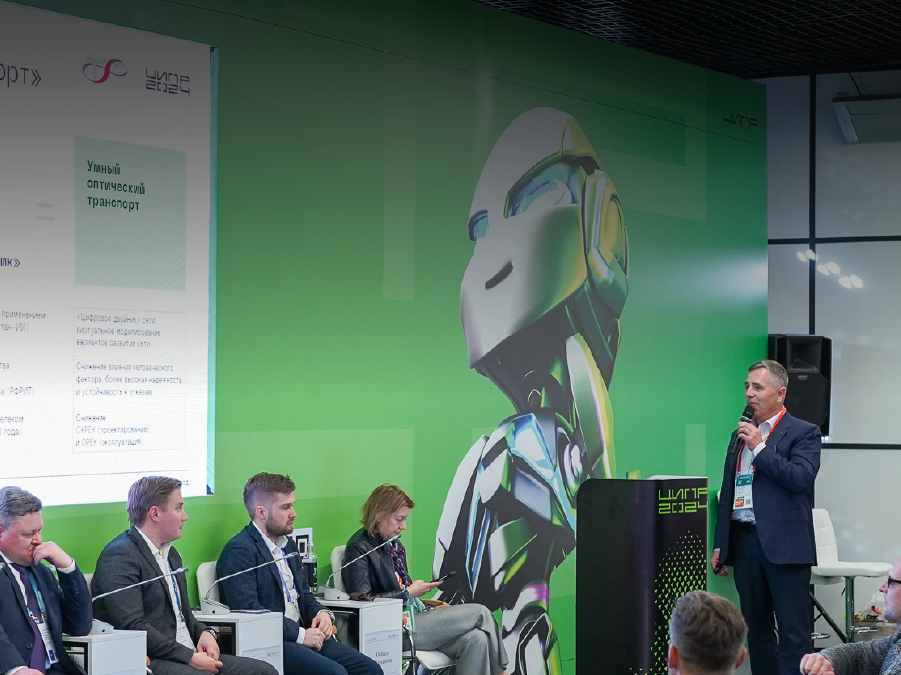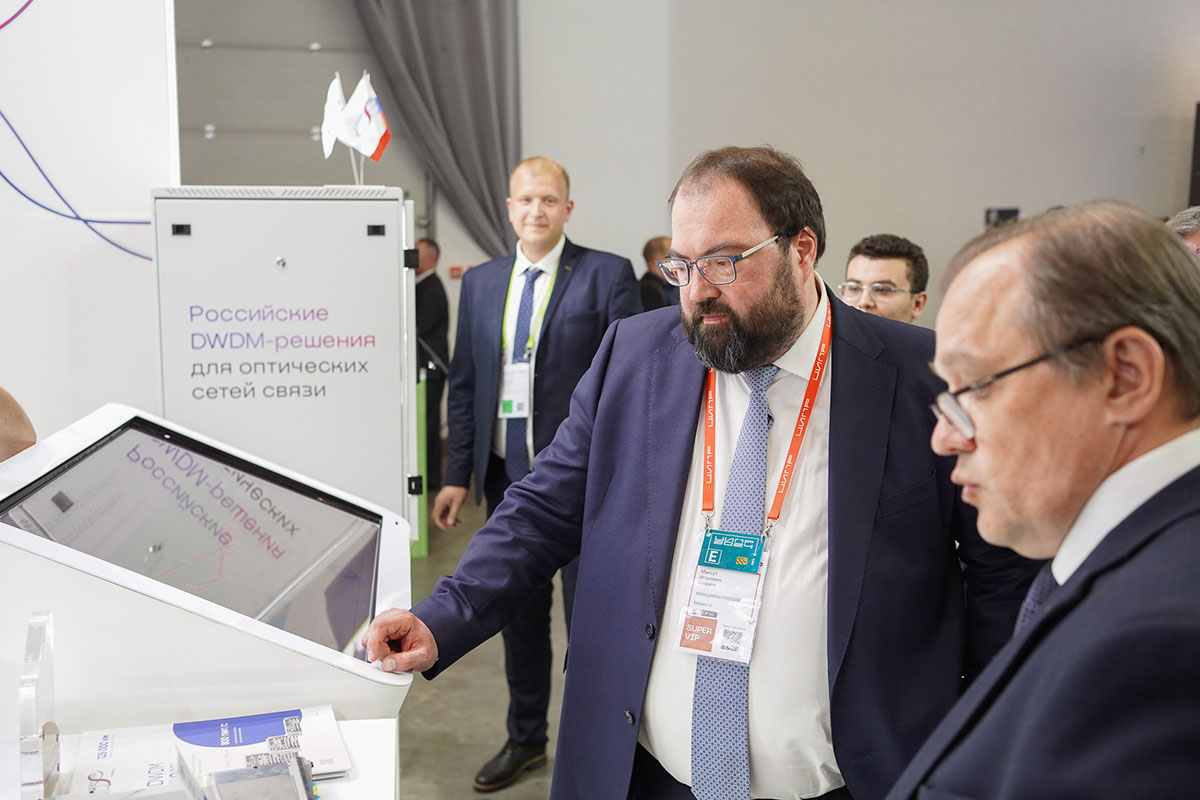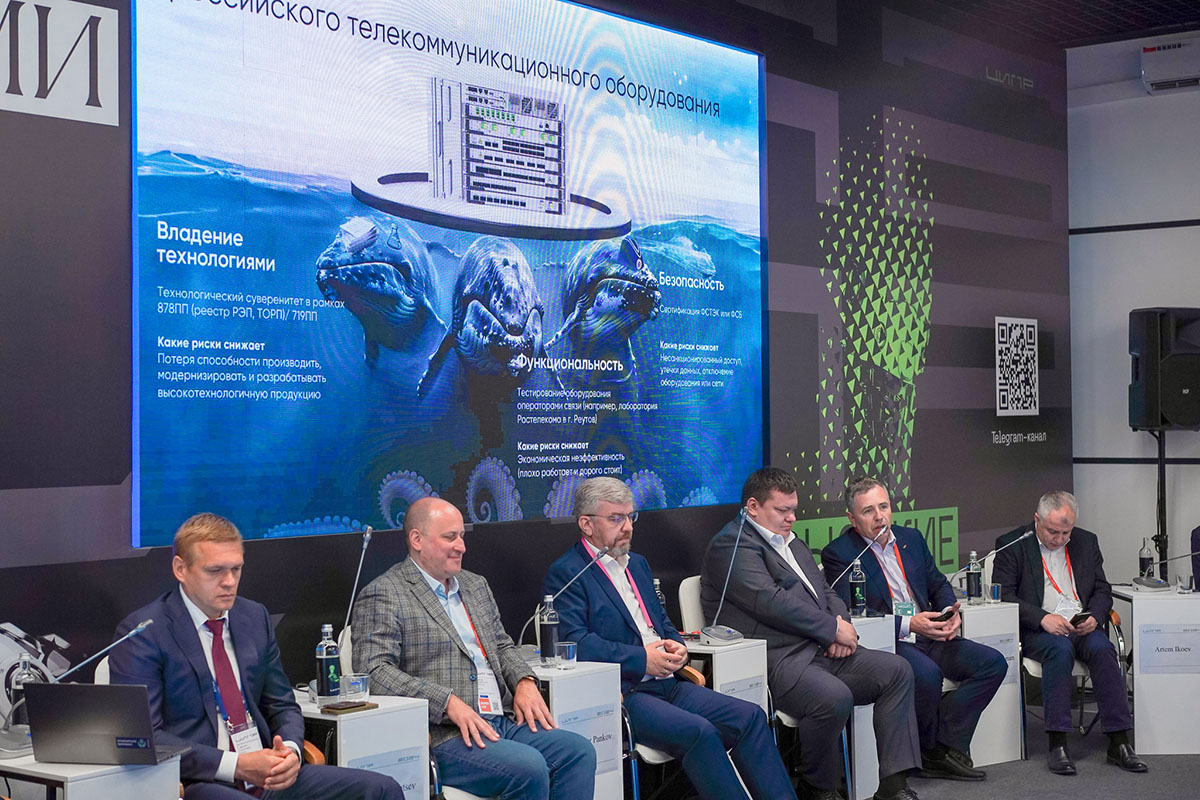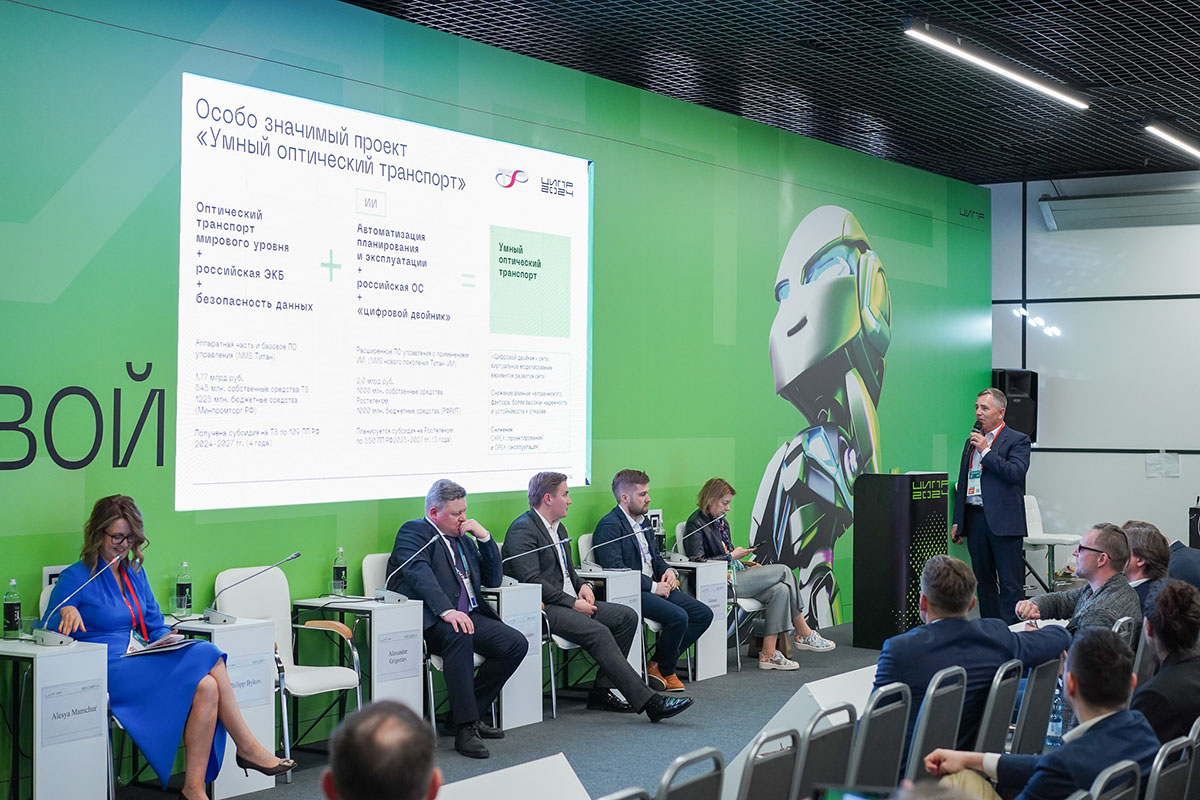T8 company participates in CIPR 2024 conference

T8 company participated in the "Digital Industry of Industrial Russia" (CIPR) conference held in Nizhny Novgorod from May 21 to 24. The event was a key spring highlight for the digital industry and high-tech companies.
Representatives from T8 showcased solutions designed to provide reliable and high-speed communications, meeting modern market demands and supporting the comprehensive national project "Data Economy." The featured solutions included:
- Volga DWDM System: Equipment with a capacity of up to 38.4 Tbps over a pair of optical fibers.
- DCI V 2 DWDM System: A high-performance platform for data centers in a 2U form factor.
- Ramenka OTDR System: A solution for automating the maintenance of optical infrastructure.
- Titan NMS System: The only domestic system for centralized management of DWDM equipment with the capability to integrate with external IT systems (OSS/BSS).
The Company's booth was visited by Maksut Shadayev, Minister of Digital Development, Communications, and Mass Media of the Russian Federation, and Gleb Nikitin, Governor of the Nizhny Novgorod Region.

On May 21, T8 hosted a partner session titled "Economic Feasibility of Transitioning to Domestic Telecommunications Equipment." Participants, including regulators and telecom market players, identified key effective measures to encourage commercial companies to adopt domestic equipment:
- Preferential leasing of domestically produced digital equipment.
- Compensation for part of the expenses for public network operators when transitioning to domestic telecommunications equipment.
- Comprehensive projects.
- Ten-year forward contracts.
- Development of the domestic microelectronics industry.
- Tax incentives.
Telecom operators suggested reducing financial burdens so that the freed-up funds could be used to purchase domestic telecom equipment.
Participants in the session included Konstantin Dolgov, Deputy Chairman of the Federation Council Committee on Economic Policy, Andrey Zarenin, Deputy Minister of Digital Development, Communications, and Mass Media of the Russian Federation, Alexander Pankov, President of PJSC VimpelCom, Alexey Sapunov, Senior Vice President for Technical Infrastructure at PJSC Rostelecom, Vladimir Treshchikov, General Director of T8 LLC, and other notable speakers.

On May 22, General Director Vladimir Treshchikov actively participated in the conference's business program. During the Ministry of Digital Development's industrial session "Telecom. The Puzzle of Russian Solutions," participants discussed ensuring the independence of the telecommunications industry in the face of limited access to foreign technologies and future developments.
"For the widespread adoption of Russian telecom equipment, three pillars are necessary. The first is functionality—equipment must be of world-class quality, competitively priced, and reliable. The second is technological mastery. This ensures technological sovereignty and reduces the risk of losing the ability to produce, upgrade, and develop high-tech products. The third is security. This minimizes risks of unauthorized access, data leaks, equipment shutdowns, or network failures. Unfortunately, if one pillar is removed, the whole structure collapses," noted Vladimir Treshchikov.

At the Rostelecom ICPC "Mobile Communications" partner pitch session, General Director Vladimir Treshchikov presented a particularly significant project. The "Smart Optical Transport" project includes:
— World-class optical transport.
— Russian electronic components.
— Data security.
— Automation of planning and operation.
— Russian OS.
— "Digital twin."
The project enables virtual modeling of network development scenarios. Reducing human factor influence leads to higher reliability and fault tolerance. Customers will benefit from lower capital expenditures and operational costs.
"The main task of optical transport is to transmit traffic over long distances—tens of terabits over hundreds and thousands of kilometers. We aim to ensure this traffic is reliable and cost-effective. We want to embed intelligence into the management system so that the software itself calculates the optimal traffic paths," stated Vladimir Treshchikov.

The CIPR conference was the main event in digital economy, attracting 10,000 attendees from 89 regions of Russia and 25 countries.
